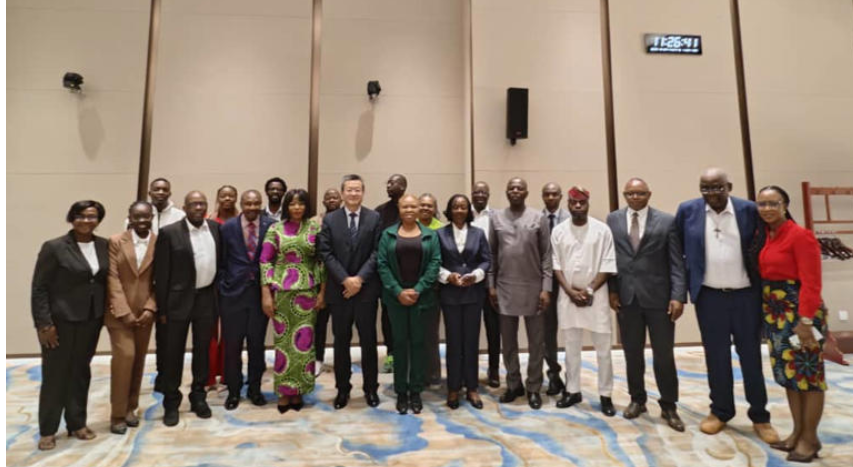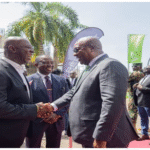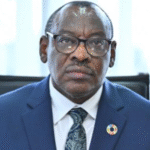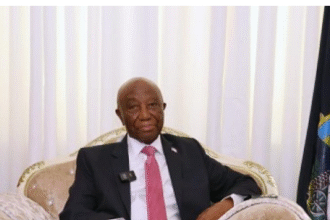Jessica Kwan Lee
Beijing, China – As the world grapples with rising geopolitical tensions and economic uncertainties, China has reaffirmed its unwavering commitment to supporting Africa’s modernization agenda through a comprehensive, win-win strategic partnership. This pledge was delivered by senior Chinese government officials during engagements with a delegation of African media and think tank leaders in Beijing on Monday.
Mr. Shen Sha, Counsellor at China’s Ministry of Foreign Affairs, and Mr. Li Mingxiang, Deputy Minister of the International Department of the Communist Party of China, emphasized China’s dedication to fostering shared prosperity and development across the African continent. The discussions, centered around the theme of “Achievements, Opportunities and Challenges of China-Africa Cooperation in the New Era, and Implementation of the FOCAC Summit,” highlighted the enduring and progressive relationship between China and Africa.
Both officials referenced President Xi Jinping’s keynote address at the 2024 Beijing Summit of the Forum on China-Africa Cooperation (FOCAC), underscoring its comprehensive framework and follow-up action plans designed to deepen bilateral relations in response to evolving global dynamics. The summit resulted in elevating China’s ties with all African countries with diplomatic relations to strategic partnerships, officially designating China-Africa relations as “an all-weather community with a shared future for the new era.”
Critically, the officials stressed China’s steadfast support for Africa amidst growing geopolitical tension, trade disruptions, and economic instability, partly fueled by protectionist policies such as the “America First” economic approach. In stark contrast, China remains dedicated to collaborating with Africa and other nations of the Global South to promote multilateralism, trilateralism, and a fairer global economic governance system.
Mr. Shen emphasized China’s readiness to work hand-in-hand with Africa to advance a people-centered modernization agenda prioritizing human development, poverty reduction, skills training, employment, and social security. He also highlighted the importance of inclusive and diverse modernization through strengthened cultural exchanges and mutual respect, facilitated by the Global Civilization Initiative. Eco-friendly growth is another key pillar, with China pledging to support Africa in developing green energy systems, improving climate resilience, and accelerating low-carbon transitions.
On the security front, China will continue to prioritize Africa under the Global Security Initiative, assisting the continent in building independent peacekeeping capacity and ensuring that peace and development advance together.
To concretize these principles, China is rolling out a series of major partnership actions with Africa over the next three years, including:
- Strengthening mutual learning:Â Establishing governance platforms, leadership academies, and 25 China-Africa studies centers.
- Expanding trade access: Granting 100% zero-tariff treatment to all Least Developed Countries (LDCs) with diplomatic ties to China, including 33 in Africa, transforming China’s vast consumer base into tangible economic opportunities for African nations.
- Promoting industrialization:Â Facilitating joint industrial clusters, empowering African SMEs, and collaborating on digital technology projects and innovation centers.
- Improving infrastructure connectivity:Â Undertaking 30 projects across Africa under the Belt and Road Initiative, enhancing transcontinental transport networks, logistics, and financial integration.
- Boosting development cooperation:Â Committing to 1,000 small-scale livelihood projects, supporting major continental events, and replenishing multilateral facilities to sustain long-term development.
- Enhancing Healthcare:Â Establishing hospital alliances, joint medical centers, and health facilities, while deploying 2,000 medical personnel to support public health and malaria control efforts and backing pharmaceutical manufacturing in Africa.
- Advancing Agriculture:Â Providing emergency food aid worth one billion yuan, setting up standardized demonstration farms, and facilitating technology transfer and two-way investment to promote value addition and job creation, generating at least one million jobs on the continent.
- People-to-people exchanges: Designating 2026 as a Year of “People-to-people Exchanges,” with expanded vocational training, youth exchange programs, entrepreneurs match making, engineering academies, Luban workshops, and a Cultural Silk Road program.
- Environmental protection:Â Implementing 30 clean energy projects, building meteorological early warning systems, and collaborating on biodiversity, remote sensing, and peaceful use of nuclear technology.
- Security enhancement:Â Committing one billion yuan in military assistance, providing training for security personnel, and conducting joint exercises, patrols, and demining operations.
Mr. Li highlighted China’s steady position as Africa’s largest trading partner for over a decade, with trade reaching US$295.5 billion in 2024, a 6.1% year-on-year increase. Projected to exceed US$300 billion in 2025, the trade volume underscores the immense potential of the economic relationship.
Madam Lindiwe Zulu, former Minister of Social Development of South Africa and leader of the visiting African delegation, emphasized the critical role of think tanks and the media in fostering public understanding and shaping opinions. She expressed her team’s shared desire for Africa’s rapid development and prosperity, while advocating for the speedy implementation of the proposals within a framework of mutual respect, benefits, transparency, and accountability.
Founded in 2000, the Forum on China-Africa Cooperation (FOCAC) now comprises 55 members – China, 53 African countries with diplomatic relations, and the African Union Commission. The 2024 Summit theme, “Joining Hands to Advance Modernisation and Build a Community with a Shared Future,” reflects the commitment to collaborative progress and shared prosperity.









